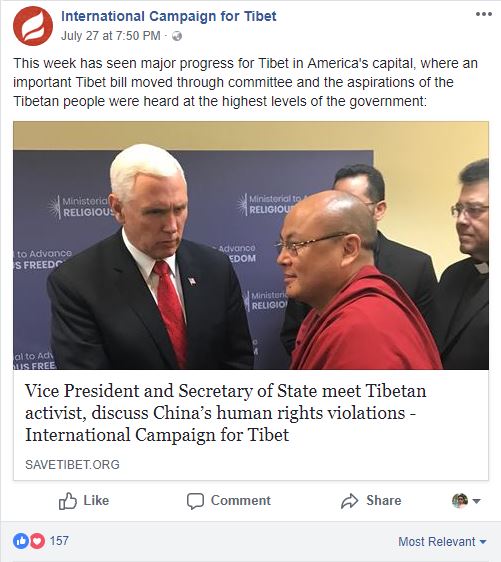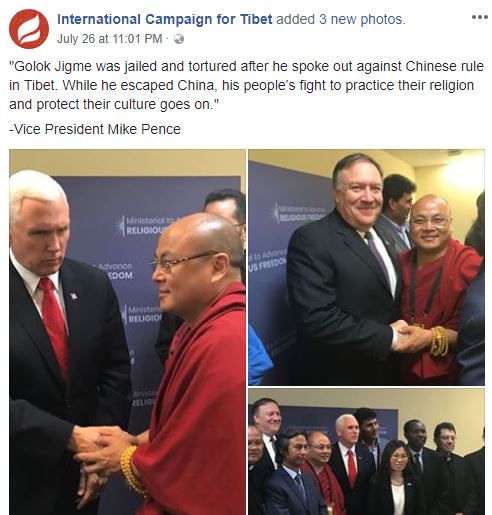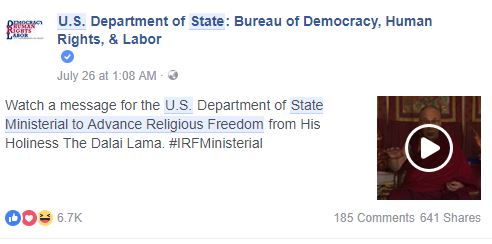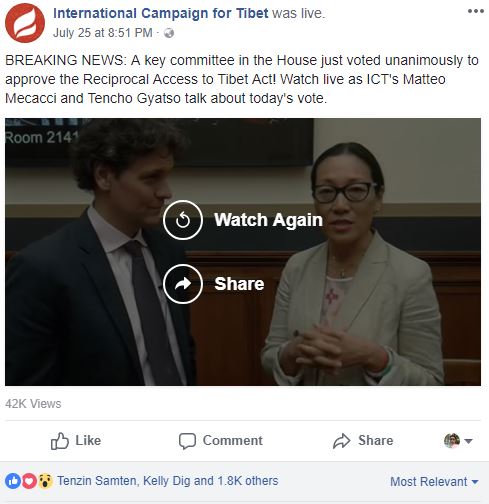The first-ever Ministerial to Advance Religious Freedom hosted by the US Department of State is the trending story on our social media sites. The three-day event held from 24 to 26 July, saw leaders from around the world discuss the issues facing religious freedom and how to alleviate the discrimination and persecutions based on religious grounds; and to promote religious freedom and ensure religious liberty for all with the participation of leaders from around the world.
The three-day event was hosted by Mike Pompeo, the US Secretary of State. The gathering witnessed a coming together of representatives from 80 countries comprising of elected officials, survivors of religious persecutions and religious leaders.
Mike Pence, Vice President of the United States delivered the keynote address on the last day of the Ministerial. In his address, the Vice President voiced his support for the victims of religious persecutions in different parts of the world. He expressed being honoured by the presence of former Tibetan political prisoner and activist Golog Jigme. In recognising Golog Jigme’s courage and stand for liberty Vice President Pence said that for nearly 70 years, the Tibetan people have been brutally repressed by the Chinese government and Golog Jigme’s escape from Tibet and into exile meant that the Tibetan people’s “right to practice their religion and protect their culture goes on.”
Golog Jigme, a former political prisoner who fled Tibet in 2017 was among the survivors of religious persecution who attended the ministerial along with elected officials, civil society members, and religious leaders. Golog Jigme in his meeting with the Vice President and the Secretary of State urged the US to push Chinese leadership to negotiate with the representative of the Dalai Lama to resolve the Tibet issue. The former political prisoner and Buddhist monk also apprised Mike Pence and Mike Pompeo of the dire state of religious freedom and human rights in Tibet. Jigme explained that Tibetans are not allowed to listen to His Holiness the Dalai Lama’s teachings and the possession of His Holiness’s portrait illegal. He also appealed for an immediate release of 11th Panchen Lama, the second most revered spiritual leader of Tibetan Buddhism, who was abducted by the Chinese government in 1995 and his whereabouts and wellbeing unknown since his abduction 23 years ago.
A video message from His Holiness the Dalai Lama was also screened during the second day of the ministerial. His Holiness in his message stressed the importance of promoting religious harmony.
In an important development for the Tibet supporters and Tibetans, the U.S. House Judiciary Committee unanimously approved the Reciprocal Access to Tibet Act, a legislation that seeks to combat China’s attempts to isolate Tibet from the outside world.
Ngodup Tsering, the representative, Office of Tibet, North America and Demo Rinpoche attended the conference. The Karmapa attended the session on July 26.
The three-day Ministerial which later Vice-President said would be an annual feature of the State Department was covered and shared by many Tibetan and international organizations. Some of the screen-grabs of the coverage:

InternationalCampaignforTibet shares Savetibet.org reports on Vice President and Secretary of State meet with Tibetan activist on its official Facebook page. Photo / Screengrab / @InternationalCampaignforTibet / Facebook

International Campaign for Tibet shares Golog Jigme meeting with Vice President Mike Pence and Secretary of the State Mike Pompeo on its official Facebook page. Photo / Screengrab/ @InternationalCampaignforTibet / Facebook

His Holiness the Dalai Lama’s message for the U.S. Department of State Ministerial to Advance Religious Freedom is shared on the official Facebook page of The U.S. Department of State: Bureau of Democracy, Human Rights and Labour. Photo / Screengrab / Facebook

International Campaign for Tibet shares Vice President Pence statement to Golog Jigme: “We are honoured by your presence, and we admire your courage and your stand for liberty,” during his address to Ministerial to Advance Religious Freedom. Photo / Screengrab / @InternationalCampaignforTibet / Facebook

International Campaign for Tibet shares video message about 4 mins length on the House Judiciary Committee approval for Reciprocal Access to Tibet Act on its official Facebook page. Photo / screengrab / @InternationalCampaignforTibet / Facebook

